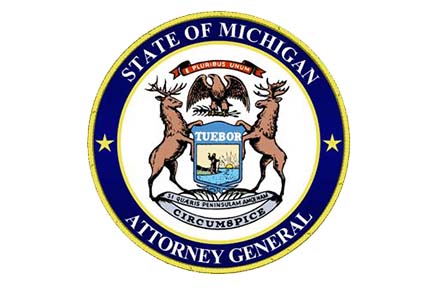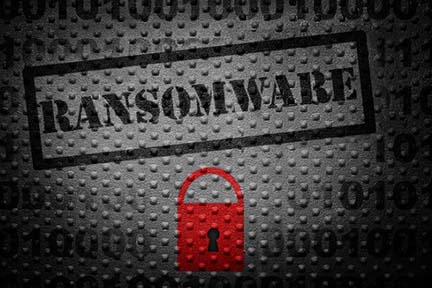
Whitmer Signs Legislation to Protect Public Health

FOR IMMEDIATE RELEASE July 21, 2022 Contact: [email protected] Governor Whitmer Signs Legislation to Protect Public Health, Other Legislation LANSING, Mich. – Today, Governor Gretchen Whitmer signed 11 pieces of legislation, bringing the total number of bipartisan bills signed to 931. “Today, I am signing several bipartisan bills to protect public health and keep dangerous tobacco products out of the hands of our young people,” said Governor Whitmer. “In addition to legislation raising the state minimum age of tobacco sales from 18 to 21, I am proud to sign bipartisan bills today that will expand access to life-saving medication for those experiencing an opioid overdose, crack down on retail crime, protect privacy, and invest in judges to boost retention and get through our case backlog expeditiously. Let’s keep working together to move Michigan forward.” Tobacco 21 Legislation Together, this legislative package brings Michigan in line with the federal Tobacco 21 legislation, raising the state age for tobacco sales from 18 to 21. The package amends several acts to raise the age of sale for retailers, prohibit anyone under 21 from entering a tobacco retail store, and prohibit tobacco sales through the mail to anyone under 21. The package also revises the disbursement of proceeds from the tax on cigarettes and other tobacco products. House Bill 6108 amends the Youth Tobacco Act to raise the minimum legal sale of tobacco products, vapor products and alternative nicotine products from 18 to 21, in alignment in with federal law. Penalties for the sale of tobacco products to under-age individuals remain up to $100 for the first offense, up to $500 for the second offense, and up to $2,500 for third and subsequent offenses. House Bill 6108 was sponsored by Rep. Tommy Brann, R – Wyoming, and a copy can be found here. House Bill 6109 prohibits anyone under the age of 21 from entering a tobacco retail specialty store, like a cigar shop. House Bill 6109 was sponsored by Rep. Tommy Brann, R – Wyoming, and a copy can be found here. Senate Bill 576 amends a portion of the Michigan penal code to require agents who distribute tobacco through the mail to verify that the recipient is 21 years of age, revising the previous age limit of 18. Senate Bill 576 was sponsored by Sen. Dale Zorn, R – Onstead, and a copy can be found here. Senate Bill 577 is an amendment to the Age of Majority Act of 1971, which prescribes the rights, liabilities, and responsibilities of individuals aged 18-20. The legislation states that the act will not apply to the Youth Tobacco Act, which now prohibits tobacco use for those under 21, rather than 18. “The Tobacco 21 package aligns Michigan with progress at the federal level, and is an important step in keeping tobacco products out of the wrong hands,” said Senator Paul Wojno. “Kudos to Governor Whitmer for working with the me and my colleagues in the legislature to protect our communities and public health across the state.”
“Children and teens should not even be exposed to tobacco products. Period,” said Wayne County Sheriff Raphael Washington. “We have seen study after study showing the effects of nicotine on the developing adolescent brain, and I’m proud to support raising the tobacco purchasing age from 18 to 21. There is no doubt this simple change will save lives.”
Senate Bill 577 was sponsored by Sen. Paul Wojno, D – Warren, and a copy can be found here.
Expanding Medication Access House Bill 5166 – a policy recommendation from Governor Whitmer’s bipartisan Opioid Task Force – enables the chief medical executive to expand access to opioid antagonists, naloxone hydrochloride or other similarly acting and safe FDA-approved drugs, for individuals experiencing an opioid overdose. This legislation allows the distribution of opioid antagonists by community-based organizations, such as a nonprofit organizations or social service providers, under a standing order. The bill protects community-based organizations from liability in any civil action that may arise out of distributing, administering, or failing to administer the opioid antagonist.
“Since much of the work of naloxone distribution is done by community organizations, this bill will greatly expand access to this safe and lifesaving medication,” said Senator Winnie Brinks. “This legislation is the result of months of work I am proud to have been part of on Governor Whitmer’s Opioid Task Force in partnership with the DHHS, and I’m glad it finally made it through the legislature. Our work isn’t done, but tools like this will help in the fight against the opioid epidemic.”
“Naloxone is a safe, easy to use, effective medication to reduce overdose fatalities in our communities,” said Steve Alsum, Grand Rapids Red Project, Executive Director, Michigan Overdose Prevention Coalition, Founding Member. “This legislation will make it easier for those most at risk of witnessing overdose situations access naloxone. As a result, lives will be saved in our communities- people will have the opportunity to live, grow, and change.”
“Overdosing from opiates is different from all other addictions in that it leads to immediate death,” said Representative Mary Whiteford “Less than 20% of our opiate addicted community members have access to the life-saving reversal agent, naloxone. They are someone’s son, daughter, brother, sister and friend. HB 5166 allows our local community organizations to provide this life saving medication and is crucial to giving people with opiate addiction a second chance at recovery.”
House Bill 5166 was sponsored by Rep. Mary Whiteford, R – Casco Township, and a copy can be found here.
Privacy in Divorce Fillings House Bill 4195 provides additional time and privacy for those who file for divorce to notify their spouse, or for the spouse to be served, before the filing is made public. The legislation aims to protect victims of domestic violence to ensure they have enough time to find a safe shelter before the abuser is notified of the divorce proceedings by prohibiting the public disclosure of divorce complaints until after proof of service has been filed with the court. It also makes nonpublic divorce complaints available to entities providing certain services related to child support and establishment of paternity.
House Bill 4195 was sponsored by Rep. Pamela Hornberger, R – Chesterfield, and a copy can be found here.
District Court Judge Compensation House Bill 4749 slightly raises district court judges’ salaries beginning in October 2022. The legislation updates the formula used to calculate their salaries to mirror the formula used for probate judges so that the salaries will now be 85% of the 2015 salary of a justice of the Michigan Supreme Court, as opposed to 84%, bringing all three judicial roles in alignment.
House Bill 5749 was sponsored by Rep. Andrew Fink, R – Hillsdale, and a copy can be found here.
Cracking Down on Crime Senate Bill 691 adds organized retail crime – the theft of retail merchandise with the intent to resell or otherwise distribute the stolen merchandise in exchange for anything of value – to the list of offenses that may be considered racketeering. Racketeering activity includes a series of statutorily defined offenses, including drug trafficking, extortion, and prostitution. Law enforcement can pursue enhanced criminal penalties against individuals who solicit or conspire to commit these offenses regardless of the value of the stolen property.
“With the signing of SB 691 into law, along with the INFORM Act and the budget that includes $3.5M for an ORC Unit, Michigan took three big steps forward this week to stopping Organized Retail Crime activity in the Great Lakes State,” said William J. Hallan, President and CEO, Michigan Retailers Association. “SB 691 gives prosecutors additional tools to ensure that criminals taking advantage of retailers and defrauding consumers are brought to justice and kept off the streets.”
Senate Bill 691 was sponsored by Sen. Jim Runestad, R – White Lakes, and a copy can be found here.
Other Legislation
Senate Bill 720 amends the Tobacco Products Tax Act with several provisions that modernize, enhance, and strengthen the act, including: altering the disbursement of tobacco taxes to various public entities; expanding and clarifying licensing requirements for those who transport tobacco products; allows creditors that acquire a tobacco product by exercising a security interest to sell that product without a license; alters compliance standards around the requirement that retailers maintain records on tobacco products going back four years; reduces the tax imposed on certain products the FDA has determined to be “modified risk” and closes loopholes in the act created by case law and strengthens the Department of Treasury’s ability to enforce the tobacco tax.
Additionally, the legislation creates new standards around the markings required on shipping containers containing certain tobacco products and prohibits the sale of individual cigarettes. The legislation also lays out new requirements for remote retail sellers and significantly strengthens state regulation and enforcement of the acquisition, sale, and distribution of tobacco products when compared to current law.
Senate Bill 720 was sponsored by Sen. Jim Runestad, R – White Lake, and a copy can be found here.
Senate Bill 721 amends the Health and Safety Act to harmonize the language concerning earmarks from the excise tax on cigarettes under the Tobacco Products Tax Act (TPTA) with the changes made to the TPTA under Senate Bill 720.
Senate Bill 721 was sponsored by Sen. Jim Runestad, R – White Lake, and a copy can be found here.
Senate Bill 722 provides technical corrections for citation references in Act 244 of 1999 and does not make substantive changes.
Senate Bill 722 was sponsored by Sen. Jim Runestad, R – White Lake, and a copy can be found here.
|









